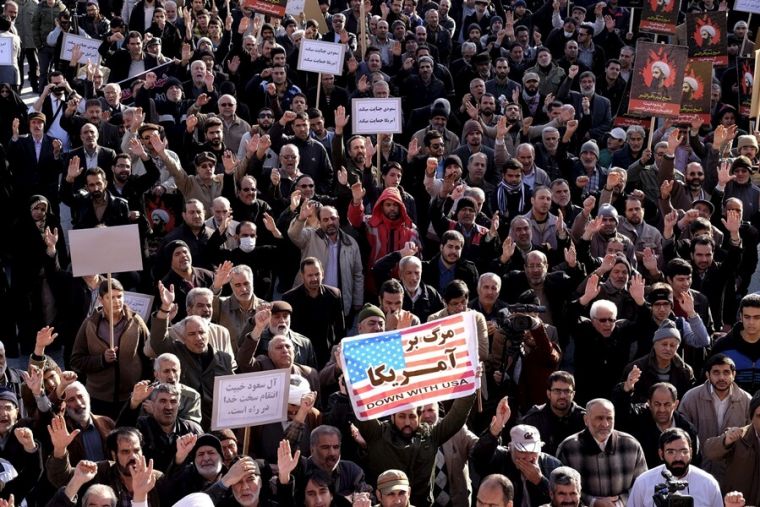More turbulent 2016? Signs of trouble show up right on first few days of the new year

Perhaps the one thing that united the world on New Year's Day was the wish that 2016 would be a less turbulent year with world leaders moving to give peace a chance.
But it would seem that the world is not ready for peace. Right on the first day of the year, North Korean President Kim Jong Un announced he was ready for war if "outsiders" provoke it, WND reported.
In his fourth address to the nation since taking power in 2011, Kim spoke of the need to increase the "political and military might" of his country "in every way," according to the official Korean Central News Agency.
Then on Saturday, Jan. 2, Saudi Arabia announced the execution of prominent Shiite dissident Sheikh Nimr al-Nimr along with 46 others. It was largest mass execution carried out by the kingdom in three and a half decades, Time magazine reported.
The backlash from the controversial Saudi move was swift. The following day, Jan. 3, anti-Saudi protests broke out in Iran, the Shiite heartland, culminating in the torching of the Saudi embassy in Tehran.
Iran's Supreme Leader Ayatollah Ali Khamenei warned Saudi Arabia of "divine revenge" over the execution of the Shiite cleric.
Iran's powerful Revolutionary Guard said Saudi Arabia's "medieval act of savagery" in executing the cleric would lead to the "downfall" of the country's monarchy.
In response, Riyadh accused Tehran of supporting terrorism as their war of words escalated.
Saudi Arabia's Foreign Ministry said that by condemning the execution, Iran had "revealed its true face represented in support for terrorism."
The Saudi statement accused Tehran of "blind sectarianism" and said that "by its defence of terrorist acts" Iran is a "partner in their crimes in the entire region."
On Monday, Jan. 4, Saudi Arabia and at least three of its allies—Sudan, the United Arab Emirates and Bahrain—broke off ties with Iran in protest against the Iranian mob attacks on the Saudi embassy.
The worsening of relations between Saudi Arabia—which hosts two of Islam's most important sites and sees itself as the guardian of the Sunni branch of Islam—and Iran—which sees itself as leader of Islam's Shia sect—is expected to worsen sectarian strife and violence between the two Islamic groups.
Iran and Saudi Arabia are already locked in conflict via proxies in Syria and Yemen. The two are also backing opposite sides in Iraq and Lebanon, Buzzfeed reported.
The intensified conflict between the two Islamic giants is expected to make it even more difficult for world powers to end the bloody civil war in Syria and deal a crushing blow on the Islamic State (ISIS) group that's threatening global terrorism.
"It's a heyday for hardliners in the region on both sides," said Randa Slim, an analyst at the Middle East Institute in Washington who speaks to both Iranian and Saudi officials.
Meanwhile, in Iran a senior commander of the Revolutionary Guards announced the country has so many missiles they don't know where to hide them all.
"We lack enough space in our stockpiles to house our missiles," said Gen. Hossein Salami, the Guards' deputy, in response to a U.S. threat to re-impose sanctions. "Hundreds of long tunnels are full of missiles ready to fly to protect your integrity, independence and freedom," he told worshippers in Tehran, promising to never "stop developing our defence deterrent."











